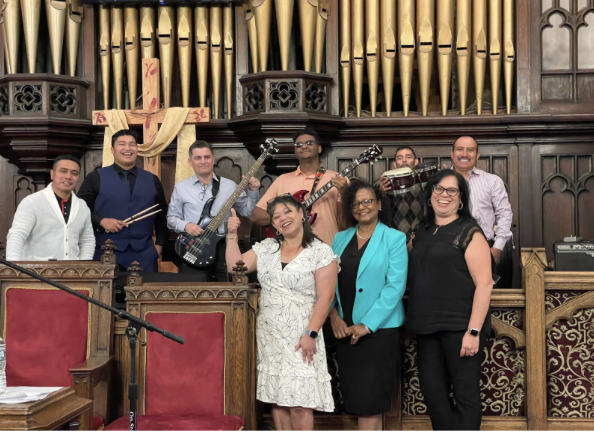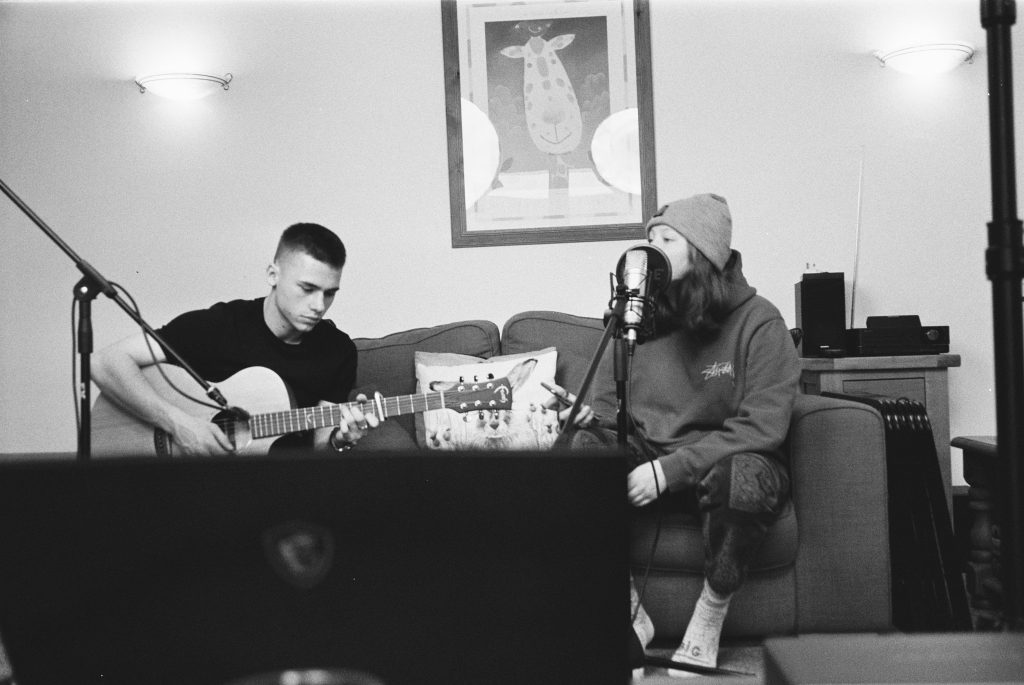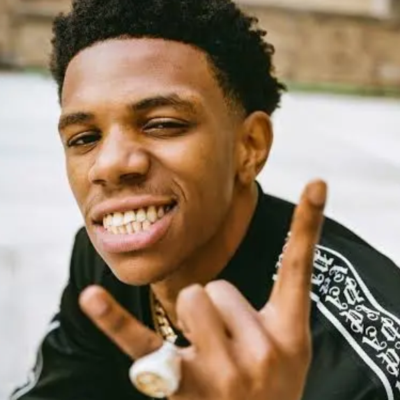Essential tips every beginner music director needs to lead a band to success
Picture this you and your friends started a band, no sense of direction on where you’re going to practice or what songs you will play. But the one thing you know for certain is that you need a director to lead the band to success. Whether you are starting a band with friends or playing at your church or you are in a band and your music director just quit. You decided that you would step up to the plate… wait how? My name is Caleb Villeda. I love music and have a strong relationship with it. Most of my knowledge comes from my Middle and High School years in band. I did marching band, concert band, and even Jazz band. Throughout my experience playing with all types of musicians and even leading my section, I developed a desire to lead a band and this opportunity came when I was having a conversation with one of my good friends. She presented me the opportunity to play and direct at a youth night that they were putting together, having no prior knowledge of how to direct a worship band, or even knowing the musicians personally, I jumped at the opportunity and that was one of the most challenging and life-changing experiences, a risk I would gladly take again. With this in mind, I present to you five essential tips that every music director needs to know.
- Getting to know your band
Getting to know your band is essential for creating an atmosphere of family, creativity, and synergy within the group. Understanding each member’s musical influences, strengths, weaknesses, and preferences helps in creating a unique sound and atmosphere that reflects the collective identity of the band. Beyond just musical compatibility, building personal relationships and trust among bandmates creates a supportive environment where ideas can flourish and artistic expression can thrive.
Moreover, knowing each other’s personalities, quirks, and communication styles enhances collaboration and minimizes conflicts, leading to smoother rehearsals, performances, and overall band dynamics. Ultimately, investing time in getting to know your bandmates lays a solid foundation for long-lasting musical partnerships and memorable experiences on and off stage.

2. Your role
Being or assuming the role of a Music Director is not just learning your part and memorizing it, knowing the parts of the rest of the band and studying them deepens comprehension of the music being performed. By familiarizing ourselves with not only their part but also those of the band, we as MD gain insight into how each component contributes to the overall sound. This understanding helps simplify the coordination and synchronization among band members, resulting in a more unified and polished performance. Additionally, being acquainted with other parts encourages a sense of musical freedom, allowing musicians to anticipate shifts in dynamics, transitions, and nuances within the composition. This heightened awareness insinuates active listening and adaptability, crucial for maintaining cohesion and responding adeptly to changes during live performances.
Furthermore, familiarity with multiple parts enhances communication and collaboration within the band, creating a supportive and harmonious musical environment. Ultimately, comprehending everyone’s role not only enhances individual musicianship but also contributes significantly to the overall quality of the musical presentation.
Watch this video by Fender for more understanding of the role an MD is: How to Become a Music Director with Kelly Rosenthal | How To | Fender

3. Being Prepared
Being prepared is not just a suggestion; it’s a fundamental requirement for any music director. Whether it’s a rehearsal, a show, or a church service, arriving prepared sets the tone for success. It’s about more than just showing up; it’s about showing up ready to deliver excellence. Imagine the difference between a rehearsal where everyone is stumbling through their parts versus one where the music flows effortlessly because everyone has put in the time beforehand. Preparation means knowing the music inside and out before you even step foot in the rehearsal space. It means having practiced your instrument, memorized your parts learned the other’s parts, and familiarized yourself with the setlist. It’s about anticipating what might go wrong and having contingency plans in place. Being prepared isn’t just about yourself; it’s about respecting your fellow musicians and ensuring that everyone’s time is used efficiently and effectively. So, when you walk into that rehearsal room or step onto that stage, you’re not just ready to perform—you’re ready to elevate the music to its highest potential.

4. Use Time Wisely
Being prepared is only half the battle or equation, time management is equally critical in the realm of music direction. Time is a finite resource, and how we allocate it directly impacts the quality of our performances and rehearsals. Effectively managing time isn’t just about efficiency; it’s about recognizing the importance of every moment and making the most of it. Finding time for practice amidst a busy schedule is essential. It’s not merely about logging hours with your instrument but about using that time strategically to master your part, internalize the music, and refine your performance skills. Additionally, there are other responsibilities to consider, such as creating setlists and communicating arrangements to the band. These tasks require time and attention to detail to ensure that everyone is on the same page and prepared to execute the music flawlessly. Prioritizing and scheduling these activities alongside other commitments is crucial to maintaining a well-oiled musical machine for lack of better words. Ultimately, by valuing and wisely managing our time, we empower ourselves and our fellow musicians to deliver performances that exceed expectations and leave a lasting impression on our audiences. What happens behind closed doors sometimes brings the best execution.

5. Have Fun
Just as the title suggested, have fun! In my life I tend to take things seriously, some even say too seriously but I’ve had to learn that it’s okay to enjoy things, despite the struggles and challenges faced. The best thing you can do is step back and breathe. Enjoy the time you have when playing, immerse yourself in the show or that church service be there in the moment. The worst thing that can happen to you is the feeling of regret when you realize that you wasted your time worrying on the stage about the rehearsal last week or the drummer messing up mid-song. These are things that happen because we are not perfect. Again I say, have FUN! Be there in the moment and express yourself with every aspect of your heart, mind, and soul.

Music directing is a remarkable form of artistry. It doesn’t matter if you have been studying music your entire career or just your passion for music; anyone can do it. It’s a fantastic way to express yourself and perceive the world from a unique perspective. As a music director, you open your mind to endless possibilities of creativity. So now that you understand the fundamentals, step out and lead. It doesn’t matter if you doubt your abilities; everyone begins somewhere on their journey.
If you seek more understanding and knowledge of what is the role of the Music Director, watch these videos as they helped me understand and be encouraged to pursue this role:










